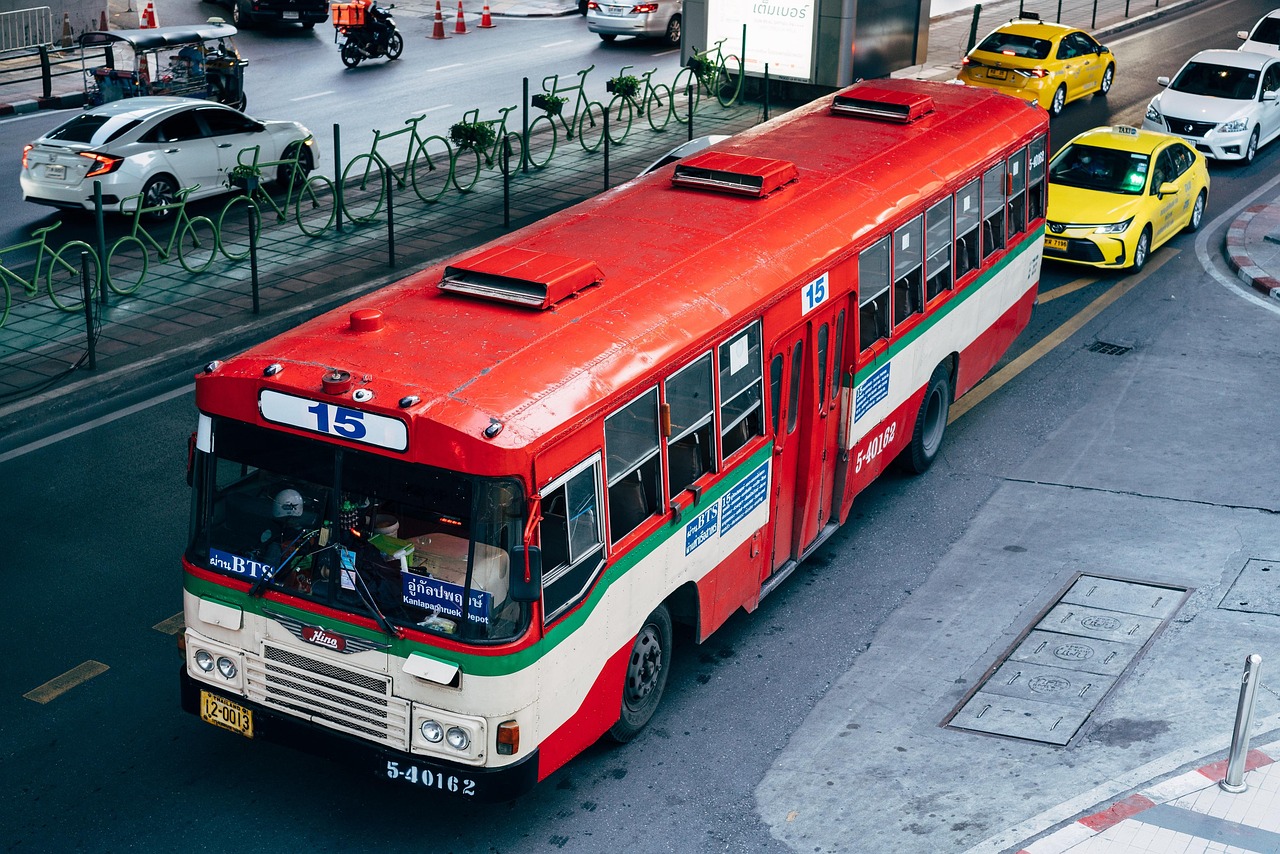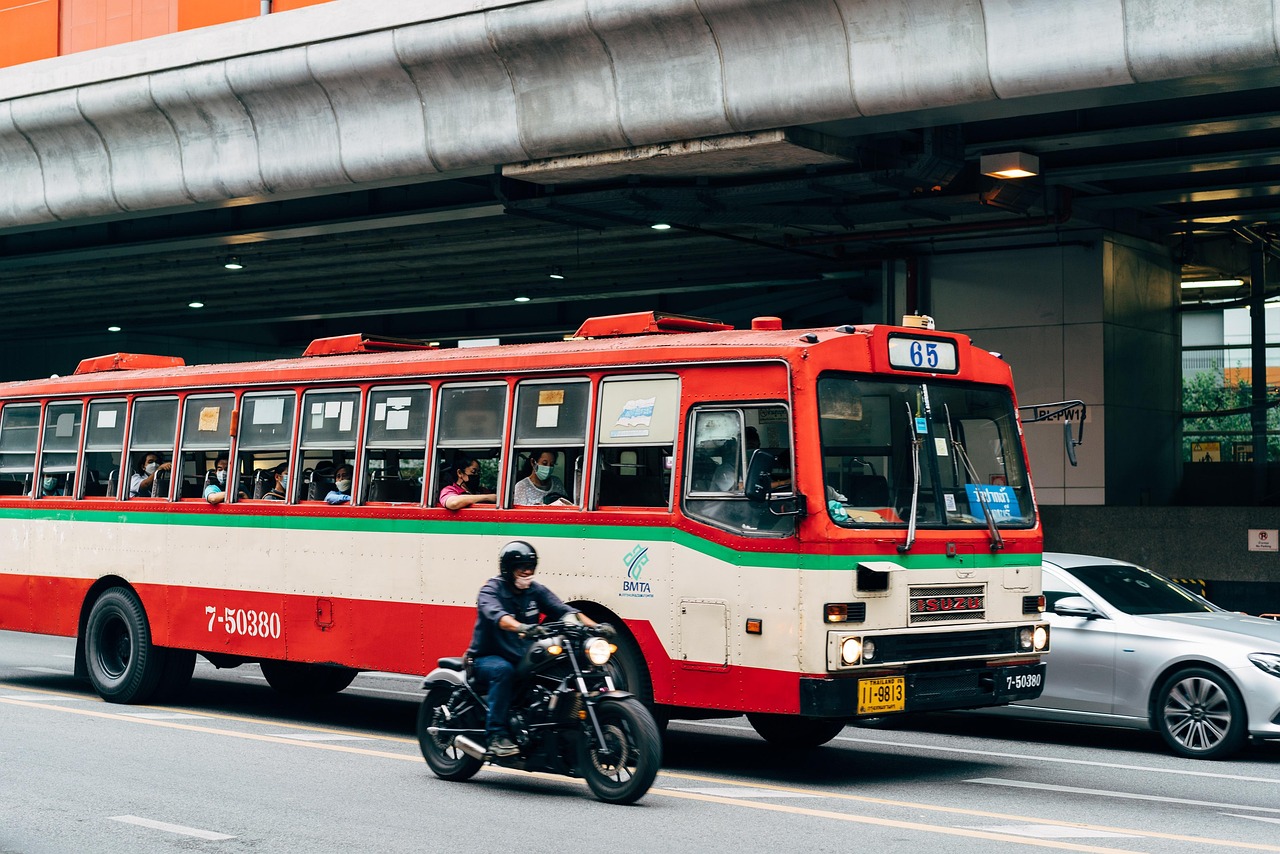Bus Travel: The Eco-Friendly Option for Budget-Conscious Travelers
Sustainable travel insights and guidance
📅 January 18, 2024
⏱️ 8 min read
🏷️ Transportation
Bus travel offers one of the most sustainable and affordable ways to explore the world. With lower emissions per passenger than cars and planes, comfortable amenities, and extensive networks, buses provide an eco-friendly alternative that's accessible to travelers of all budgets.
🚌 The Green Advantage of Bus Travel
Buses produce significantly fewer emissions per passenger than cars and airplanes, making them one of the most sustainable forms of transportation. Modern buses are also becoming more fuel-efficient and environmentally friendly.
 Sustainable Travel
Sustainable Travel
🌍 Environmental Benefits of Bus Travel
Bus travel offers significant environmental advantages, making it an excellent choice for eco-conscious travelers.
Lower Emissions: Buses produce fewer CO2 emissions per passenger than cars, especially when running at high capacity.
Fuel Efficiency: Modern buses are designed for maximum fuel efficiency, reducing environmental impact per mile.
Reduced Traffic: Bus travel reduces the number of individual vehicles on the road, decreasing traffic congestion and emissions.
Electric Buses: Many cities are introducing electric buses, offering zero-emission public transportation.
💰 Economic Benefits of Bus Travel
Bus travel offers excellent value for money, making sustainable travel accessible to everyone.
Affordable Fares: Bus tickets are typically much cheaper than train or plane tickets for the same distance.
No Hidden Costs: Bus travel eliminates parking fees, tolls, and other costs associated with driving.
Flexible Pricing: Many bus companies offer discounts for advance booking, students, seniors, and frequent travelers.
City Center Access: Buses often connect directly to city centers, eliminating the need for expensive airport transfers.
🌱 Sustainable Bus Companies
Many bus companies are implementing sustainability initiatives to reduce their environmental impact.
Electric Fleets: Companies like FlixBus and Greyhound are introducing electric buses to their fleets.
Biofuel Programs: Some companies use biofuels made from renewable sources to power their buses.
Carbon Offsetting: Many bus companies offer carbon offset programs for passengers who want to further reduce their impact.
Efficient Routing: Smart routing systems optimize fuel consumption and reduce emissions through efficient trip planning.
🎒 Planning Your Bus Journey
Planning a bus journey requires different considerations than other forms of travel, but offers unique advantages.
Route Research: Research bus routes, schedules, and connections to find the best options for your journey.
Booking in Advance: Book tickets in advance for better prices and seat selection, especially for popular routes.
Stopover Planning: Take advantage of bus travel to explore cities and regions along your route with stopovers.
Luggage Considerations: Check luggage policies and pack accordingly, as bus storage space may be limited.
🚌 Types of Bus Travel
Different types of bus services offer various levels of comfort and amenities for different travel needs.
Intercity Buses: Long-distance buses offer comfortable seating, restrooms, and sometimes Wi-Fi for extended journeys.
City Buses: Local bus services provide affordable transportation within cities and metropolitan areas.
Tourist Buses: Specialized tourist buses offer guided tours and scenic routes for sightseeing.
Luxury Buses: Premium bus services offer enhanced comfort, amenities, and service for a more upscale experience.
🌍 International Bus Travel
International bus travel offers unique opportunities to experience multiple countries and cultures in a single journey.
Cross-Border Services: Many bus companies operate international routes connecting neighboring countries.
Pass Options: International bus passes offer flexible travel across multiple countries with one ticket.
Border Crossings: International bus travel often involves border crossings, so ensure you have proper documentation.
Cultural Experience: Bus travel offers opportunities to meet locals and experience different cultures along the route.
🎒 Bus Travel Tips and Comfort
Bus travel can be comfortable and enjoyable with the right preparation and mindset.
Seat Selection: Choose seats near the front for less motion, by windows for views, or in the back for more privacy.
Comfort Items: Bring a neck pillow, blanket, and entertainment for longer journeys.
Snacks and Drinks: Bring your own snacks and drinks, or purchase them at rest stops along the route.
Entertainment: Bring books, music, or work materials, or simply enjoy the changing scenery and people-watching.
 Sustainable Transport
Sustainable Transport
🌱 Making Bus Travel More Sustainable
There are many ways to make your bus travel even more sustainable and environmentally friendly.
Choose Electric Buses: When possible, choose bus companies that use electric or hybrid vehicles.
Pack Light: Lighter luggage reduces fuel consumption and makes travel more efficient.
Bring Reusables: Bring your own water bottle, coffee cup, and food containers to reduce waste.
Offset Emissions: Consider carbon offsetting for your bus travel to further reduce your environmental impact.
🌍 The Future of Sustainable Bus Travel
Bus travel represents an accessible and sustainable way to explore the world. As bus companies continue to invest in cleaner technologies and more efficient operations, bus travel will become even more environmentally friendly and comfortable.
Key Benefits:
- Environmental Impact: Lower emissions per passenger than cars and planes
- Affordability: Cost-effective travel option for all budgets
- Accessibility: Extensive networks connecting cities and regions
- Flexibility: Multiple daily departures and route options
- Cultural Experience: Opportunity to meet locals and experience different communities
Remember: Bus travel is about more than just transportation—it's about experiencing the journey and the communities you pass through. Every bus journey is an opportunity to travel sustainably while supporting local economies and reducing your environmental impact.
 Sustainable Travel
Sustainable Travel
 Sustainable Transport
Sustainable Transport